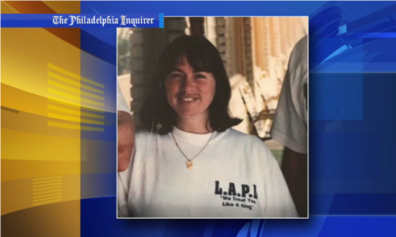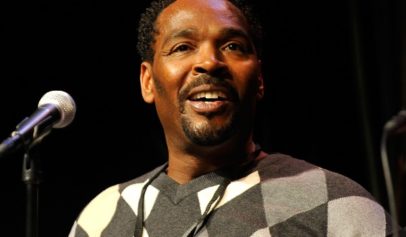Twenty-five years ago, Los Angeles erupted in violence after a white jury acquitted the four white cops who brutally beat Rodney King within an inch of his life despite video evidence. Twenty-seven years prior, that same volcano of rage ignited the Watts Riots. Similarities between the two riots is not lost in National Geographic’s bold documentary “LA 92” or the many others that also mark the historic uprising. But what makes “LA 92” — directed by Dan Lindsay and TJ Martin, who also directed the racially insightful, Oscar-winning documentary feature “Undefeated” — is presentation.
“We approached the film by only using archival footage,” Martin, who describes himself as “mixed race,” explained to attendees of the advance Atlanta screening at the Regal Atlantic Station organized by the Black-owned 135th Street Agency. “So, there is no narration. There are no interviews. The hope for us was to remove the middle person, for lack of a better term, so there’s no filter between you, the audience and the raw footage that was captured during the civil unrest in 1992.”
That raw footage, culled from about 1700 hours worth of viewing, is captivating. It is raw footage of police beating Black folks in the 1960s and 1990s. It’s news reports from white anchors in the thick of the Watts Riots in 1965. It’s in the courtroom as the Los Angeles police officers who administered the King near-lynching justify their actions. It’s the white female judge giving the female Korean shop owner who shot and killed 15-year-old Latasha Harlins probation instead of jury-recommended jail time. It’s Rev. Cecil Murray of First AME Church (FAME) addressing his congregation. It’s the physical destruction of core Black L.A. neighborhoods. It’s displaced L.A. residents sleeping on cots or standing in enormous lines in the midst of and following the L.A. Riots. All, as Martin said, with “no filter.”
“We wanted to find stuff that we felt hadn’t been seen,” Lindsay says. “For us, we didn’t want to just make that same kind of thing, show the same footage, have the same people talk because nothing changes as a result of that.”
“The intention was to create an experience, to draw you closer to what the events felt like, not necessarily analyze the events and to not shy away from what the reality of what the events were like for the people who experienced it,” Martin explained further during the post-screening Q&A with The Daily Beast Editor-at-Large Goldie Taylor.
“LA 92” does that and more. It raises important questions as well as challenges assumptions. By showing Tom Bradley’s address to the city following the verdict, for example, “LA 92″ reminds people who may have forgotten or alerts those who never even realized that Los Angeles had a Black mayor during the riots. And, in some ways, Lindsay says, that’s reminiscent of President Obama and Ferguson and Baltimore all over again.
Seeing Bradley, Lindsay says, challenges “this idea that, after Watts, L.A. elects its first Black mayor and we’re living in a time that America elects its first Black president and somehow everything is cured and there is a feeling like that in L.A., too.”
Martin astutely observes that the root causes of riots like those in L.A. are not necessarily “cyclical, like this is something that happens every 25 years. No, it’s every day for some people.”
It’s that lightbulb that both Martin and Lindsay hope comes on for most viewers. “The worst thing you can do is stop having the conversation because, in communities that seemingly don’t have to deal with these kind of issues day to day, then it disappears. They think everything is fine,” Martin says. But the truth, Lindsay explains, is “the fabric of our society is so fragile” that it doesn’t take much for it to unravel.
By putting a camera — or a mirror, some would say — on certain injustices, Martin believes the systemic failures of our society will reveal themselves better than any talking head could.
“The fact that the judge [Joyce Karlin] has the arrogance and the audacity to say ‘I know a criminal when I see one’ [regarding Latasha Harlins’s murderer Soon Ja Du, whom she granted probation],” Martin says. “There’s something about that action and that mentality that’s reflective of the system.
“So, I don’t know if I need an expert to say ‘that’s the system’ vs. having a representative of it having no shame in saying that.”
Lindsay and Martin never want to insult their audience’s intelligence. “We always say, ‘Give the audience the benefit of the doubt and let them draw their own conclusions,’” Martin says.
Despite this country’s extreme ugliness, the duo is optimistic about the fresher approach of “LA 92.” “Hopefully, going after it in a new way,” Lindsay says, “we might create a new conversation.”
“LA 92” airs on National Geographic Sunday, April 30, 9/8c.


